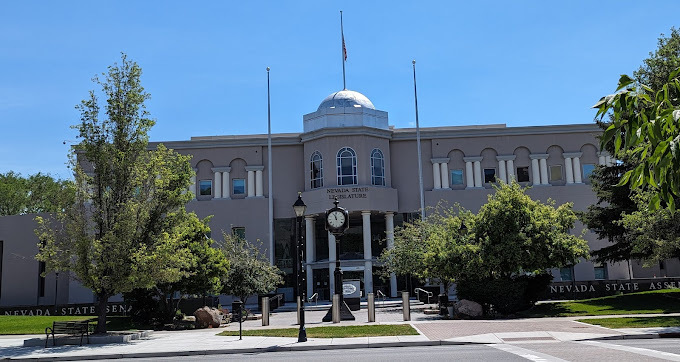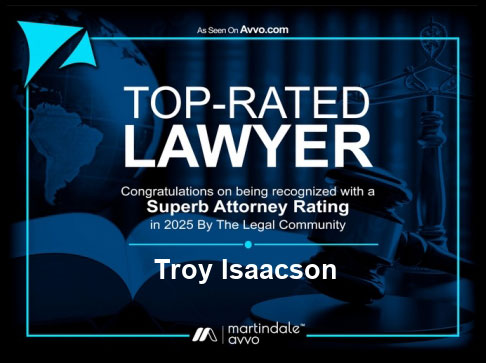ISAACSON LAW BLOG
Are HOA Protections Failing Nevada Homeowners?

When Can an HOA Enter a Unit?
HOAs generally have limited authority to enter a homeowner’s unit, but there are circumstances where access is legally justified:
Emergency Situations
If an issue threatens immediate harm to the property or residents (e.g., a gas leak, flooding, or fire), the HOA can typically enter with prior notice. For example, where a mortgage holder has requested notice and a unit is vacant, NRS 116.310312 may allow the Association to enter a condominium, townhome, or patio home (i.e., buildings with shared walls, ceilings / floors), where the association provides prior notice and an opportunity for a hearing and the association mails a notice of intent of the association by certified mail to each mortgage holder.
Necessary Maintenance or Repairs
When repairs impact common areas or shared utilities (such as plumbing leaks affecting multiple units), the HOA may have the right to access the affected unit. However, ensuring compliance with both Nevada law and the association’s governing documents is essential. Always check the governing documents to ensure proper notice is being provided.
Compliance with Governing Documents
If the HOA’s governing documents include provisions allowing for inspections, the HOA can enter under those guidelines.
Court-Ordered Entry
If a homeowner refuses entry despite a legitimate need, the HOA may need to pursue legal action to obtain access. This is done by filing a lawsuit asking the court to declare that the association has a right of entry and seeking an injunction which compels the unit owner or resident to allow such access.
Best Practices for HOA Unit Access
To minimize conflicts and legal risks, HOAs should follow these best practices when accessing units:
Provide Proper Notice
Unless it’s an emergency, always provide written notice as required by the community’s governing documents and Nevada law.
Clearly Define Access Rights in Governing Documents
The HOA’s CC&Rs (Covenants, Conditions & Restrictions) should specify the situations, procedures, and limitations for unit access.
Document Everything
Keep records of notices sent, homeowner responses, and reasons for entry to protect the HOA from possible legal challenges.
Work with Legal Counsel
To ensure proper compliance with Nevada law and the community’s governing documents, associations are encouraged to work with its legal counsel. This is particularly true where an owner denies access, the HOA may need to seek a court order or legal intervention to gain entry.
Real-World Consequences of Denying Access
Denying HOA access can have serious consequences, as seen in a real case where a sewer line backup caused severe property damage. The homeowner refused access for over a month, resulting in costly destruction that could have been avoided. Ultimately, the HOA had to take legal action to force entry, proving that timely compliance can prevent expensive and unnecessary legal disputes. Such denial of entry can further preclude coverage under an association’s insurance policies. To mitigate against further harm and a potential denial of coverage, acting fast is paramount.
Final Thoughts: A More Homeowner-Friendly HOA Starts with You
If an association board fails to enforce access rights, they could be held liable for negligence or breach of duty if property damage occurs due to inaction. Courts have ruled that HOAs must act in the best interests of the community to prevent avoidable damage and financial loss. Though owners of the units from which the issue stems may not appreciate the association’s efforts, acting in a prompt, courteous, yet firm manner will gain their respect as well as the appreciation from neighboring residents.
Takeaways for HOA Boards & Managers
- Know the legal grounds for entry and follow Nevada laws and the community’s governing documents.
- Communicate with homeowners and residents to proactively to avoid resistance.
- Always document notices and interactions to protect the HOA from liability.
- Seek legal assistance if access is denied to prevent costly delays and potential lawsuits.
By following these best practices, associations can ensure they are acting within their legal rights while fostering positive homeowner relationships. For more information on association compliance and legal guidance, Isaacson Law is here to help. Contact us today to discuss your association’s access rights and responsibilities.

LOCATION
- (702) 529-2559
- 4730 S. Fort Apache Rd, Suite 280 Las Vegas, Nevada 89147
BUSINESS HOURS
Monday – Friday: 8:30am to 5:30pm
Recent Blog Posts

Legislative Session 4-20-25

Legislative Session 3/15/25



